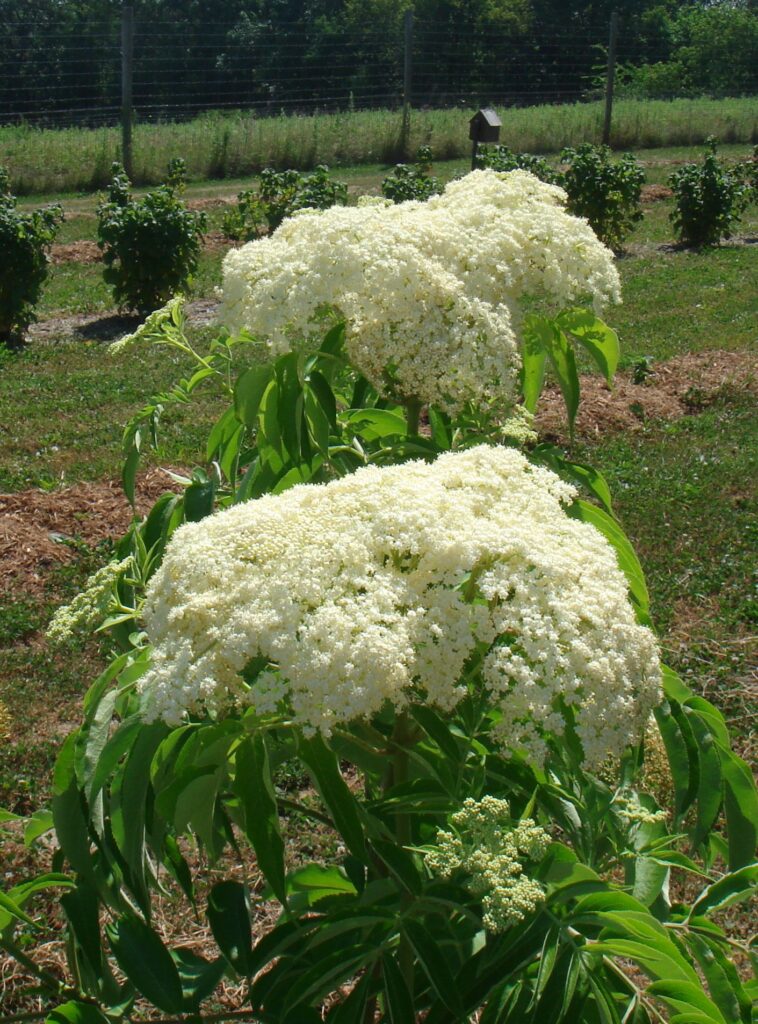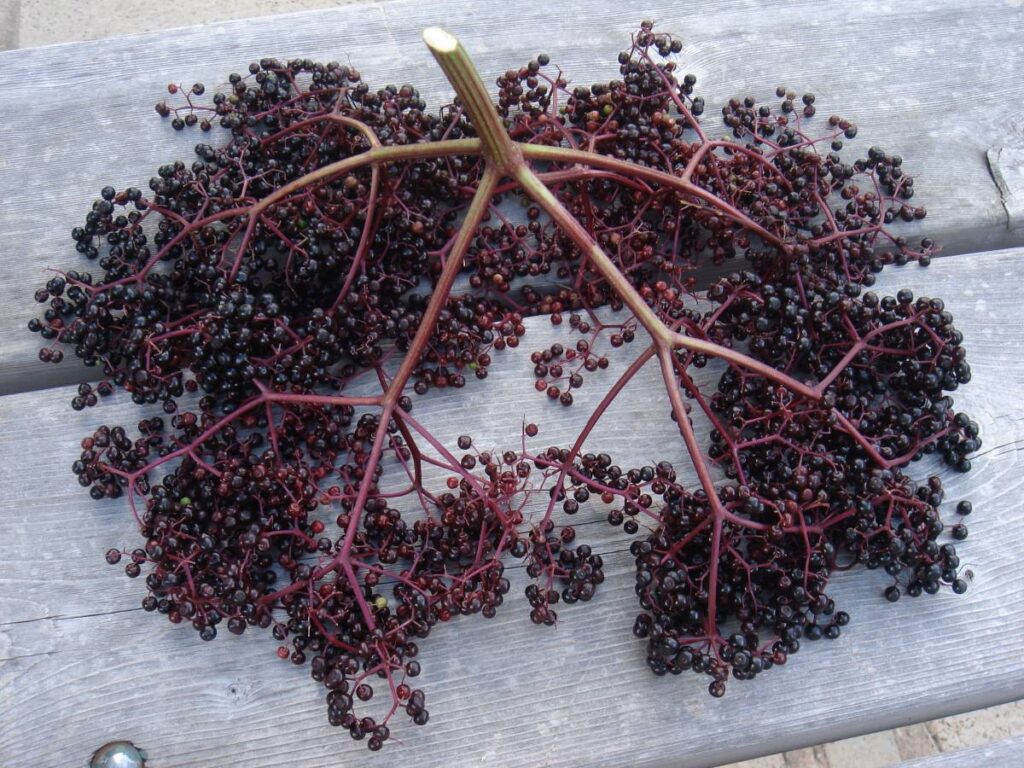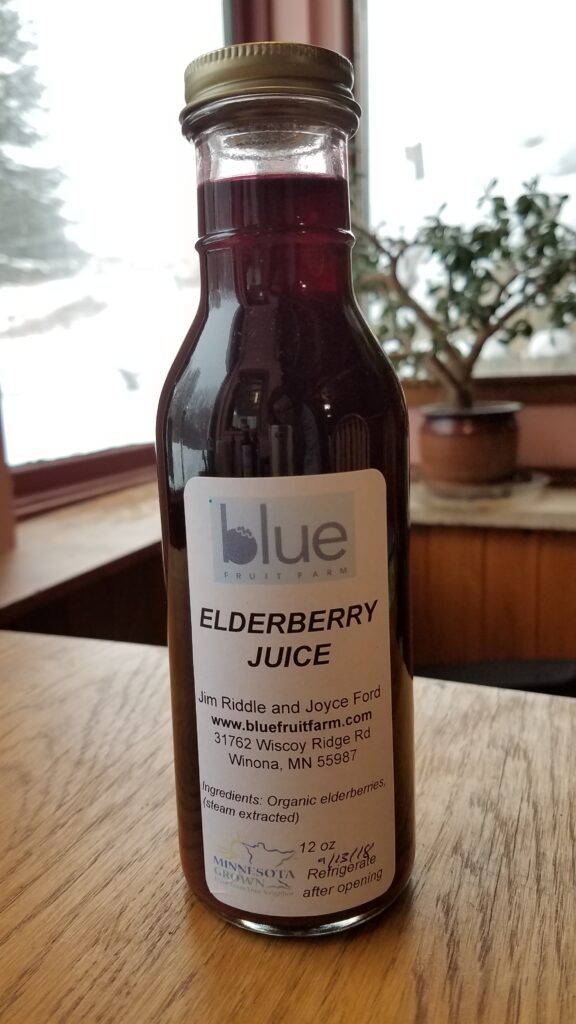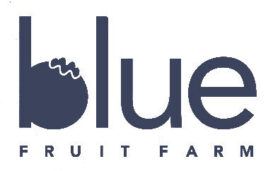
About Elderberries
The Elderberry, Sambucus canadensis, is a medium shrub with white flowers that grow in a cyme. When ripe, the cyme contains a multitude of dark purple fruits. Elderberries can be found wild in the continental US along roadsides and tolerate a wide range of growing conditions. They can be grown as an ornamental plant, for wildlife food, or for production of flowers or fruits. Both the flowers and fruits of this plant are edible. A new study by the Midwest Elderberry Cooperative has found that the North American genus we grow do not contain cyanids as do the European varieties. Eating elderberry seeds are as safe as eating apple seeds. Nevertheless, we advise you to de-stem and cook elderberries before consuming.
At Blue Fruit Farm, we grow the cultivated varieties of York, Johns, Adams, Nova, Wyldewood, Bob Gordon, and Ranch. Some were purchased as nursery stock from Saint Lawrence Nurseries in upstate New York. The Bob Gordon, Wyldewood, and Ranch were originally obtained from Terry Durham of River Hills Harvest in Missouri. New plantings come from our own cuttings propagated in peat moss and vermiculite.
We start harvesting elderberries in late summer and continue until frost.
To learn more about elderberries, download a copy of the Savanna Institute’s Elderberry Grower’s Guide for the Midwestern US, which features Blue Fruit Farm as a case study.
Health Benefits
Elderberries have numerous health benefits and have actually been used as medicine around the world for centuries!
The anti-viral and anti-inflammatory characteristics of elderberry make it a “must have” for a good health maintenance plan, especially during the cold and flu season. Our customers give rave reviews because during cold and flu season, when others are falling ill, a blue shot of Elderberry Juice a day has kept the doctor (and the sick days) away.
Elderberries are rich in minerals including potassium, iron, and phosphorous. They contain vitamins A, B, and C. They are high in antioxidants, being rated over 14,000 on the Oxygen Radical Absorbance Capacity (ORAC) table.
Elderberries aid digestion, support cardiovascular health, bone and respiratory health, boost immunity, enhance skin, and promote weight loss. Because elderberries contain anthocyanin, they can help to prevent cancer. For more information on elderberries click here.


Using Elderberries
The juice makes delicious jellies, syrups, salad dressings, and can be used to enhance barbecue sauces. Historically, it has been used for its medicinal properties, taken as a tincture or concentrate. Elderflowers make a great tea and can be used in salads. The fruits, leaves, and inner bark can all be used to produce dyes.
Our customers use elderberry by making gummy bear chews and cough syrups. Some people drink elderberry juice and mix the frozen berries in with smoothies during cold and flu season.
We sell fresh elderberries on the stem by the pound, but also have a bicycle-powered de-stemmer so we can de-stem the berries for you. Some people freeze the berries before gently pulling them off the stem. We de-stem fresh berries, inspect for debris and insects, and freeze in 5 lb bags. We also sell 12 oz bottles of Elderberry Juice and Elderonia Juice (2/3 elderberry and 1/3 aronia juice). Check out this gummy bear recipe to keep the little ones healthy too!
